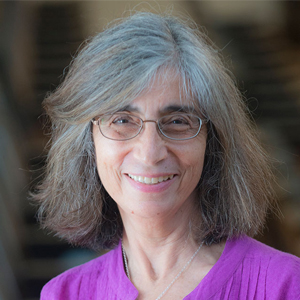Learning to listen
When I retired from Wellesley College several years ago, I gave a talk about lessons I had learned over my years of teaching. The first one was “Listen to the students.” This is a good starting point for mentoring, as well: listening not just to students, but to one another.
I used to teach a course called Women in Science: Their Lives and Work; the central assignment was to conduct interviews with women scientists. When the students returned with their oral histories, I was struck by how many of these scientists expressed a wish to work part-time. Their supervisors — usually men — thought this indicated a lack of commitment to science. But if you listened to what the women were saying, it really indicated a deep commitment to science — so deep that they were willing to sacrifice money, prestige and even some of their time with family to maintain their connection to the scientific enterprise. You needed to listen to everything they were saying, not just the surface request for fewer hours, to understand the totality of their lives and the value of research in those lives.
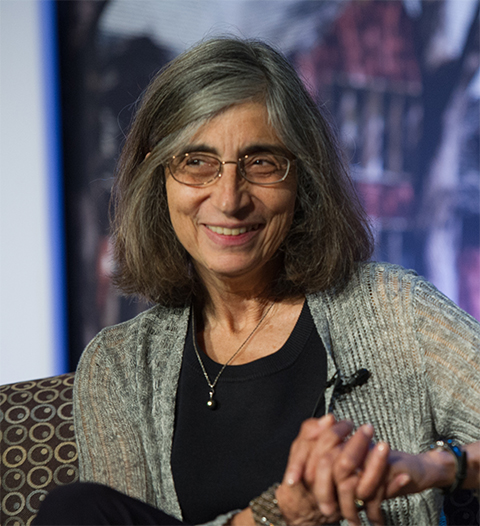
My husband also learned about listening at Wellesley. He took courses to get his teaching license as a second (or maybe third or fourth) career. He came home after his first course at Wellesley and said in amazement, “People really listen to one another in my classes. They don’t just wait until the other person finishes talking so that they can say what they want to say.”
This was something he had not experienced in all his years in academia. Listening is a skill. I am glad so many of my colleagues not only learned that skill but also instilled it in their students.
Retirement is great. The downside is that you have to clear out your lab. But, the upside is that you get to reflect on all the students who had passed through it. As I did that, I thought about the ways that I had been a good or not-so-good mentor to some of them.
In the early years, I hadn’t learned that lesson about listening. I was more focused on success — for them, for me, for our projects — and sometimes didn’t recognize that research was not their desired path or that classwork or family commitments needed to take priority over time in the lab.
I like to think I got better over time at listening well and actually hearing what students — and young faculty, employees and colleagues — were saying and offering appropriate support when I could, or at least being present and honest.
I occasionally get wonderful letters from alums, saying that a single semester or year in my lab allowed them to see themselves as scientists. This shows that sometimes you can be an unintentional mentor by simply providing space and opportunity and not imposing your own expectations.
In the early 1990s, when I started chairing the American Society for Biochemistry and Molecular Biology Committee on Equal Opportunities for Women, I published an editorial titled, “Increasing opportunities for women benefits the entire research community.” Even then, that seemed to be a self-evident hypothesis — that broadening the range of experience and viewpoints of those entering the field would enhance all of science. But, in these times when “diversity” as both a demographic and attitudinal term is out of favor, it is worth revisiting how far we have come in opening doors for women in BMB fields in these 30-plus years. Unlike in a lot of other scientific fields, women in BMB have achieved parity in degrees awarded at all levels. Achieving parity in positions of power, awards, funding is another story.
The ASBMB is a great example of not just women’s participation but of women’s leadership. Since I wrote that editorial, more than half of the society’s presidents have been women, including eight out of the last 11 counting our current and incoming presidents. Officers, Council, editors, prize winners and speakers are noticeably more gender diverse than they were 30 years ago, and overall the ASBMB has recommitted to diversity in every dimension.
The annual women’s networking dinner at DiscoverBMB is a good example. At our first reception, a handful of prominent women scientists stood around a hotel lobby, trying to network and support one another. This has grown to be a featured event.
During the women’s dinner in New Orleans soon after Hurricane Katrina, many of the panelists shared feelings of loss and helplessness in the wake of that tragedy. At other times, the reception has been the starting point for important conversations around careers, work–life balance and work environments.
We clearly have a lot more ceilings to crack, and gender is not the only aspect to consider. In addition to increasing representation along dimensions of race, ethnicity, physical ability and neurodiversity, and sexual orientation and gender identity, I would hope that we could better address representation from all professional sectors: research and education, academia and industry. But let’s take a moment to celebrate all the progress we’ve made in listening to each other.
(This essay was adapted from remarks delivered at the Women’s Networking Dinner at Discover BMB 2024 in San Antonio where the author received the ASBMB Sustained Leadership Award.)
Enjoy reading ASBMB Today?
Become a member to receive the print edition monthly and the digital edition weekly.
Learn moreGet the latest from ASBMB Today
Enter your email address, and we’ll send you a weekly email with recent articles, interviews and more.
Latest in Opinions
Opinions highlights or most popular articles
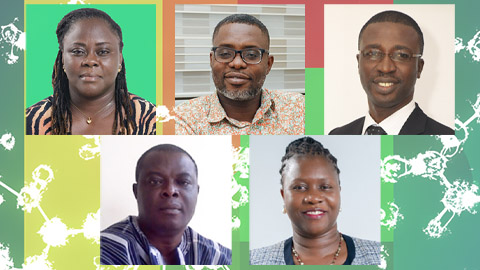
Getting to know scientists half a world away
In a program at Wellesley College, students interview and write about researchers at a university in Ghana.

Let’s make ASBMB awardees look more like BMB scientists
Think about nominating someone outside your immediate network.
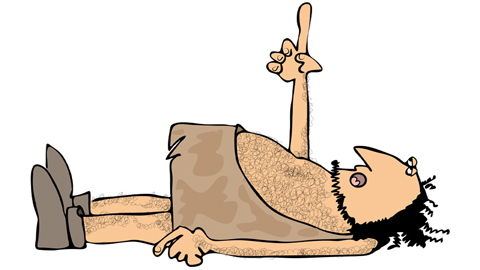
A paleolithic peer review
You might think review panels have only been around for the last century or so. You would be mistaken.

Early COVID-19 research is riddled with poor methods and low-quality results
The pandemic worsened, but didn’t create, this problem for science.

So, you went to a conference. Now what?
Once you return to normal lab life, how can you make use of everything you learned?
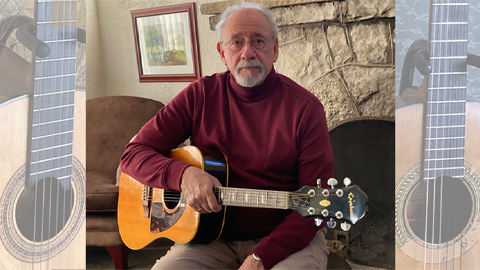
My guitar companion
A scientist takes a musical journey through time and around the world.

